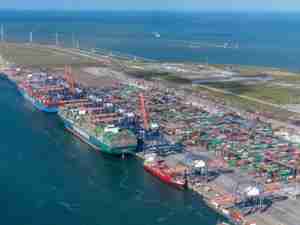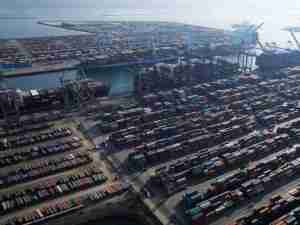Terex Port Solutions supplies first Terex® rubber-tired gantry cranes to Turkey
posted by AJOT | Jan 21 2014 at 03:05 PM | Ports & Terminals
Terex Port Solutions (TPS) has received an order from Asyaport, a joint venture led by Terminal Investment Limited SA. (TIL), for 24 Terex® rubber-tyred gantry (RTG) cranes. The cranes, designed as E-RTG variants, are in the process of being designed and manufactured at the TPS facility in Xiamen, PR China. E-RTGs are powered with electricity from the terminal’s electricity supply, which is in this case fed to the cranes along busbars. The fleet of cranes is due to be delivered at the end of 2014, early 2015, with a delivery in batches, to Asyaport on the Sea of Marmara, about 150 km west of Istanbul. TIL, in cooperation with the Soyuer Group, a local investor, operates the port, which is to be expanded to become one of the largest container terminals in Turkey.
Powerful Presence in a Growing Market
“This order means Terex rubber-tyred gantry cranes are celebrating a ‘first’ in Turkey,” enthused Maurizio Altieri, General Manager of TPS Xiamen. Terex Port Solutions is already well established in the rapidly developing region with a range of ship-to-shore cranes, various types of harbour cranes for container and bulk handling, gantry cranes for container stacking as well as a number of other cargo handling machines. “The current order is not only another success story in one of the key growth markets in maritime trade, it confirms our strong foothold in the container-handling gantry crane segment, following another prestigious project acquired in April 2013, for the delivery of 26 E-RTGs to PTP Malaysia,” continued Altieri.
As far as TIL is concerned, the investment is of strategic importance: “The Sea of Marmara is a crucial interface in trade between Asia and Europe and an important hub for the steadily increasing flow of goods across the Bosporus into the Black Sea. In addition, handling volumes are increasing due to the rapid advancement in the Turkish economy,” explains Marc Desmons, Engineering Services Manager for TIL. “Thanks to the new cargo handling machines from Terex Port Solutions, we will be well placed to face these challenges.”










